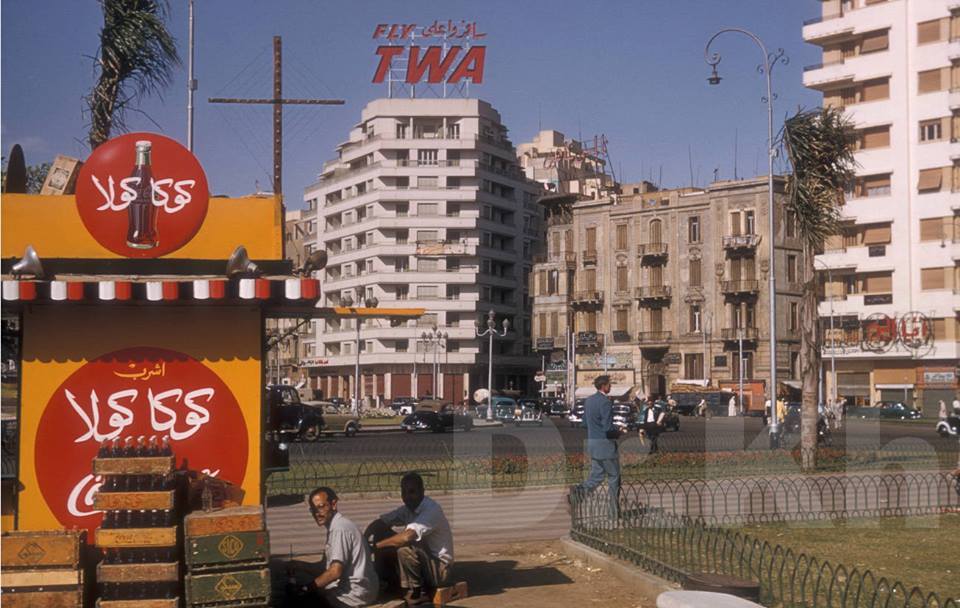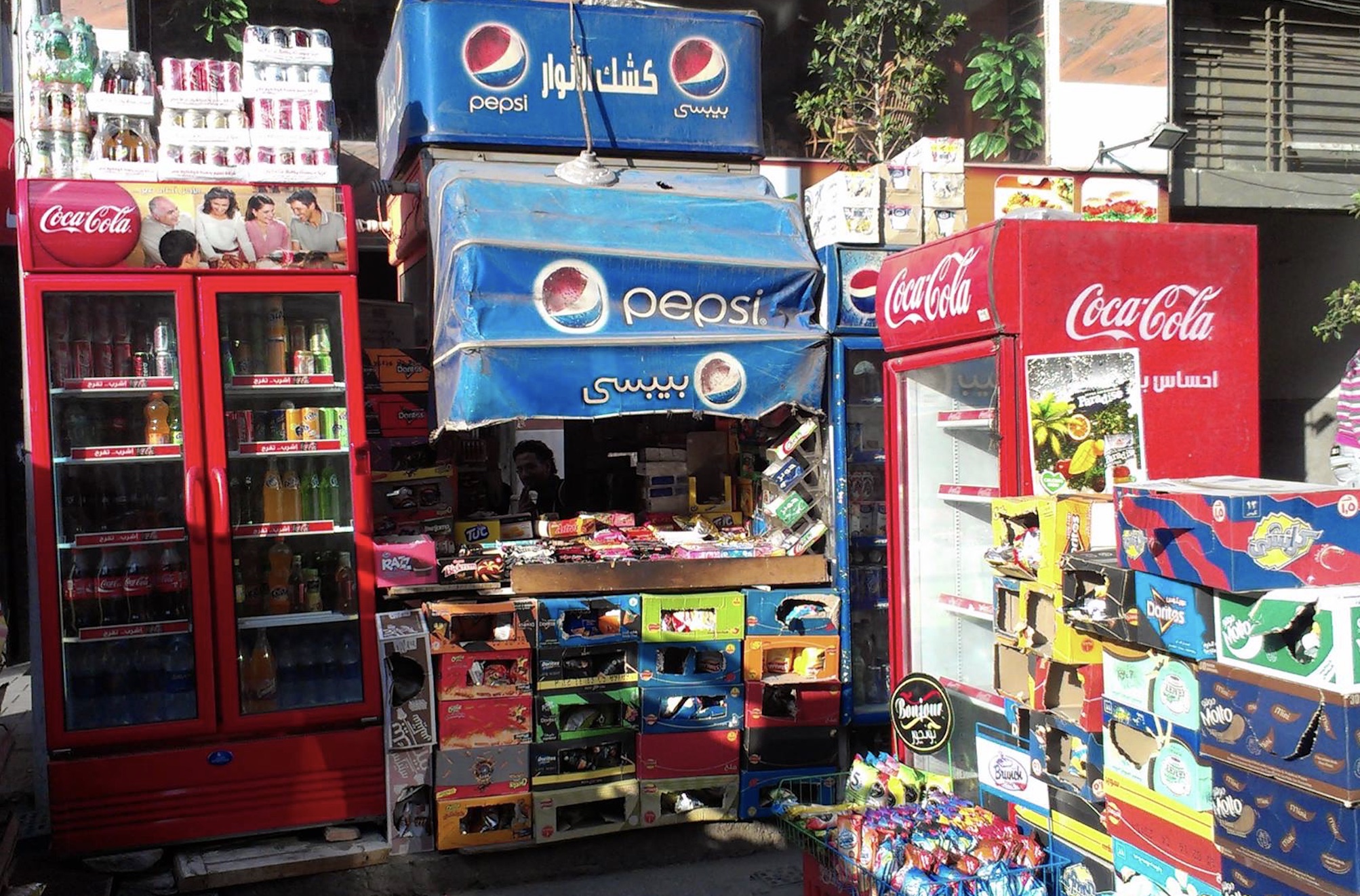Attached to the average Egyptian are beliefs and convictions – a favorite football team, political affiliation, and the like. While the myriad of differences parallel the chaos that is Cairo, there is one place where everything is put aside for Egyptians of all doctrines: the koshk.
A compact carryall of all essentials is a small kiosk that sits as a cultural staple for Egyptians. Branded with Pepsi and CocaCola logos, no rivalry or competition inhabits the koshk area. Rather, goods stacked to the ceiling and piles of boxes spilling out onto the streets – the koshk is a happy place.
It is believed that the oldest koshk dates back to the 1930s, under the rule of King Fouad I and King Farouk. The term, ‘koshk,’ is derived from many origins, where in Persian the word ‘kushk,’ means a palace, while its Turkish origins, the kiöshk, means pavilion or palace. The French translation of ‘kiosque,’ means a small roofed stall that sells f newspapers, confectionery, and much more.
Every corner in Egypt has a koshk – where streets have become synonymous with the vibrant element and the radiance to which people of all ages huddle around to hang out. On the banks of the Nile, to the right side of the ring road – but not for the faint-hearted – to the small and big cities, the koshk is always around the corner, the most reliable friend.
“People would suffer if there were no koshks,” says 32-year-old Karam, who works at a koshk on Mansour Street in Midan Falaki to The Koshk Project.
The small wooden shop is the expedited version of large chain supermarkets, where in a fast-paced world, it is the perfect balance of goods and services. A part of the koshk’s long-standing durability throughout the decades is its affordability and availability.
For decades, the koshk has been the one-stop shop for cigarettes, gum, chips, and sodas. Before the emergence of cellphones, the koshk had a phone – not a cellphone, an actual landline — for people to make calls. Today, there’s a small cellphone at the koshk, often chained to its flimsy walls, which you could pay to make calls from.

On street 261 in Maadi sits 27-year old Mohamed at a simple koshk, subtly practicing the sport of people-watching as his koshk overlooks a usually busy street.
“I work a 12-hour shift, from 10 AM until 10 PM, and then my friend takes over for the next 12 hours. We’re open 24/7, and this gives us an edge, because people are always buying at all times of the day. You never know when someone’s going to need something from our koshk,” says Mohamed to Egyptian Streets?
The length of Mohamed’s shift forces him to analyze the most commonly bought items at his stand. He explains that amongst Egyptians of all ages, genders, and social distinctions, cigarettes are the most commonly bought item. For munchies and snacks, Mohamed explains that Egypt’s iconic Molto is the second most commonly bought item alongside chipsy.
Although Mohamed does not own the koshk, he treats it as if it were his. He says that if the Koshk is ever left unattended, it could get robbed, and instances of this have occurred before.
In spite of the koshk’s traffic, which in Mohamed’s shift is usually highest between the hours of 1 PM and 3 PM, Mohamed implies that there is a big difference in koshk business after COVID-19.
“After COVID-19, the koshk doesn’t become as crowded as it once did. Prices have exponentially increased, so people don’t really buy in bulk the way they used to before,” Mohamed explains.
There is something incredibly endearing about the koshk phenomenon, perhaps it is the collective familiarity that it has over every Egyptian, regardless of the enigmatic differences between them. Enter the koshk – all is left at the one-stop shop full of happiness.







Comments (2)
[…] The Culture of the Cairo Koshk Africa for Africans: A Lost Promise? […]
[…] ثقافة القاهرة الكشك […]